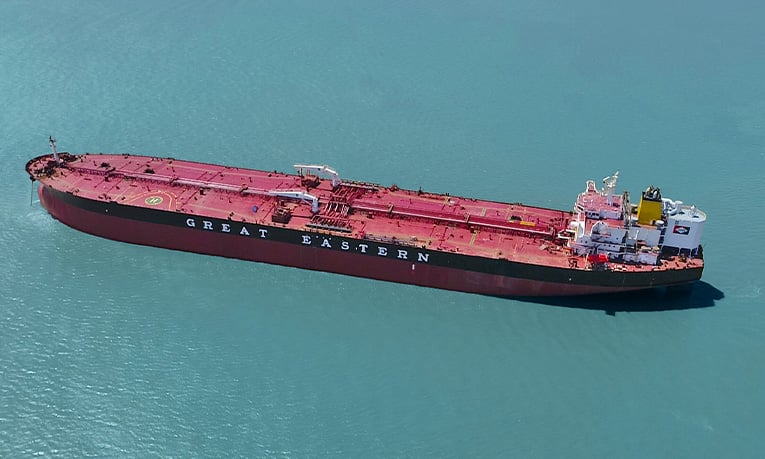Great Eastern Shipping Navigates Decarbonization Challenges

In the face of regulatory uncertainty and evolving fuel options, Great Eastern Shipping is taking proactive steps toward decarbonization. The company is focusing on flexible fleet upgrades and operational efficiencies while supporting the development of low-GHG fuel infrastructure in Indian ports. As the shipping industry gears up to meet the International Maritime Organization’s (IMO) ambitious decarbonization targets for 2050, questions about fuel availability and costs loom large.
Proactive Measures Amid Uncertainty
Great Eastern Shipping, India’s largest private-sector shipping company, is addressing the complexities of decarbonization head-on. Capt. Ankush Gupta, the company’s Chief Operating Officer, emphasizes the need for a clear regulatory framework, particularly a global fuel standard. Despite the uncertainties surrounding future fuel options, the company is actively pursuing immediate solutions. Gupta highlights their pioneering efforts in India, where they have successfully conducted trials using marine biofuel blends on their tankers. This initiative demonstrates that sustainable drop-in fuels can significantly reduce emissions without requiring extensive modifications to existing engines.
With a fleet of approximately 40 vessels, including tankers, bulk carriers, and gas carriers, Great Eastern Shipping is committed to a cautious yet steady fleet renewal strategy. This approach aligns with India’s national maritime vision, which emphasizes sustainability and innovation. The company is collaborating with Indian ports and government bodies to develop the necessary infrastructure for green shipping corridors, particularly focusing on green hydrogen and ammonia. Gupta notes that these partnerships are crucial for shaping a sustainable future in shipping.
To enhance operational efficiency, Great Eastern Shipping has implemented various energy-saving measures. DNV’s Maritime Advisory experts previously conducted a decarbonization study for the company, resulting in actionable recommendations. Gupta explains that their primary focus is on installing energy-saving devices during dry dockings. Investments in propulsion efficiency, such as pre-swirl devices and high-efficiency propellers, have already yielded substantial reductions in fuel consumption and CO2 emissions. Additionally, the company is exploring advanced technologies like air lubrication systems and onboard carbon capture to further support their long-term decarbonization goals.
Strategic Fleet Renewal and Digital Solutions
As the shipping industry navigates high newbuilding prices and limited yard availability, Great Eastern Shipping is prioritizing the acquisition of younger, well-maintained second-hand vessels. This strategy aims to create a more fuel-flexible fleet capable of adapting to future low-GHG fuel options. Gupta asserts that this approach not only enhances fleet efficiency but also helps manage the company’s Carbon Intensity Indicator (CII) ratings while maintaining a healthy balance sheet. Although these measures are not the final solution for achieving net-zero emissions, they represent a prudent path forward until the new fuel ecosystem is clearly defined.
Great Eastern Shipping has also leveraged DNV’s digital platforms, such as Emissions Connect, to enhance its operational efficiency. By adopting this service, the company transitioned from a reactive to a proactive, data-driven approach to emissions management. Gupta highlights the importance of real-time data verification for regulatory compliance and strategic planning. This shift has allowed the company to continuously monitor fleet performance and simulate future CII ratings, providing a competitive edge in charter negotiations and carbon cost management.
US port charges on China vessels add to supply chain uncertainty
Looking ahead, Great Eastern Shipping recognizes that future investments in newbuilding projects will be critical. Gupta emphasizes the importance of collaboration with DNV to de-risk these investments through comprehensive techno-economic feasibility studies. By utilizing DNV’s expertise and digital tools, the company aims to navigate the evolving landscape of fuel options and regulatory requirements effectively.
Great Eastern Shipping is committed to leading the charge in decarbonization within the shipping industry. Through strategic partnerships, innovative technologies, and a focus on operational efficiency, the company is positioning itself for a sustainable future while addressing the challenges of regulatory uncertainty and fuel availability.
